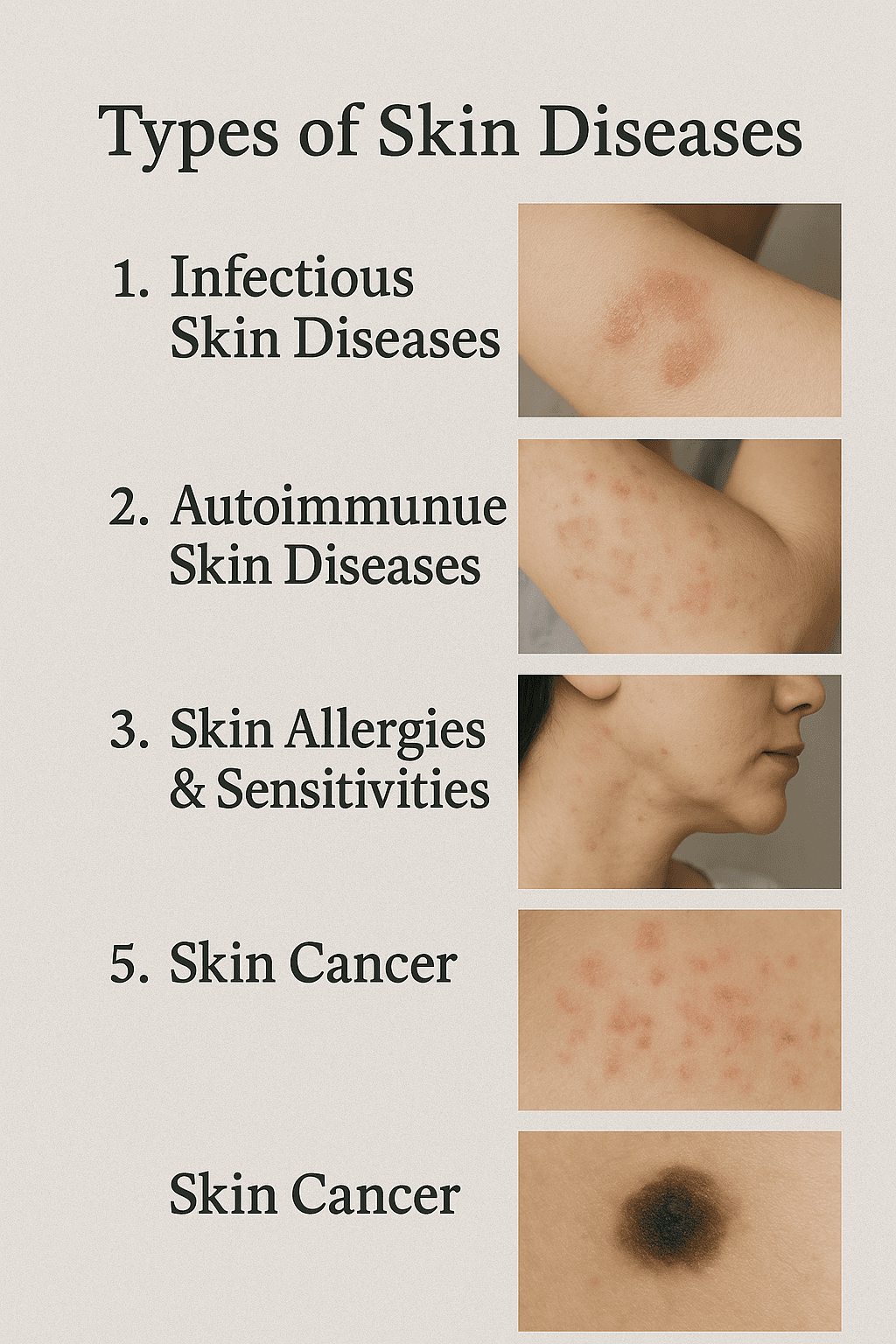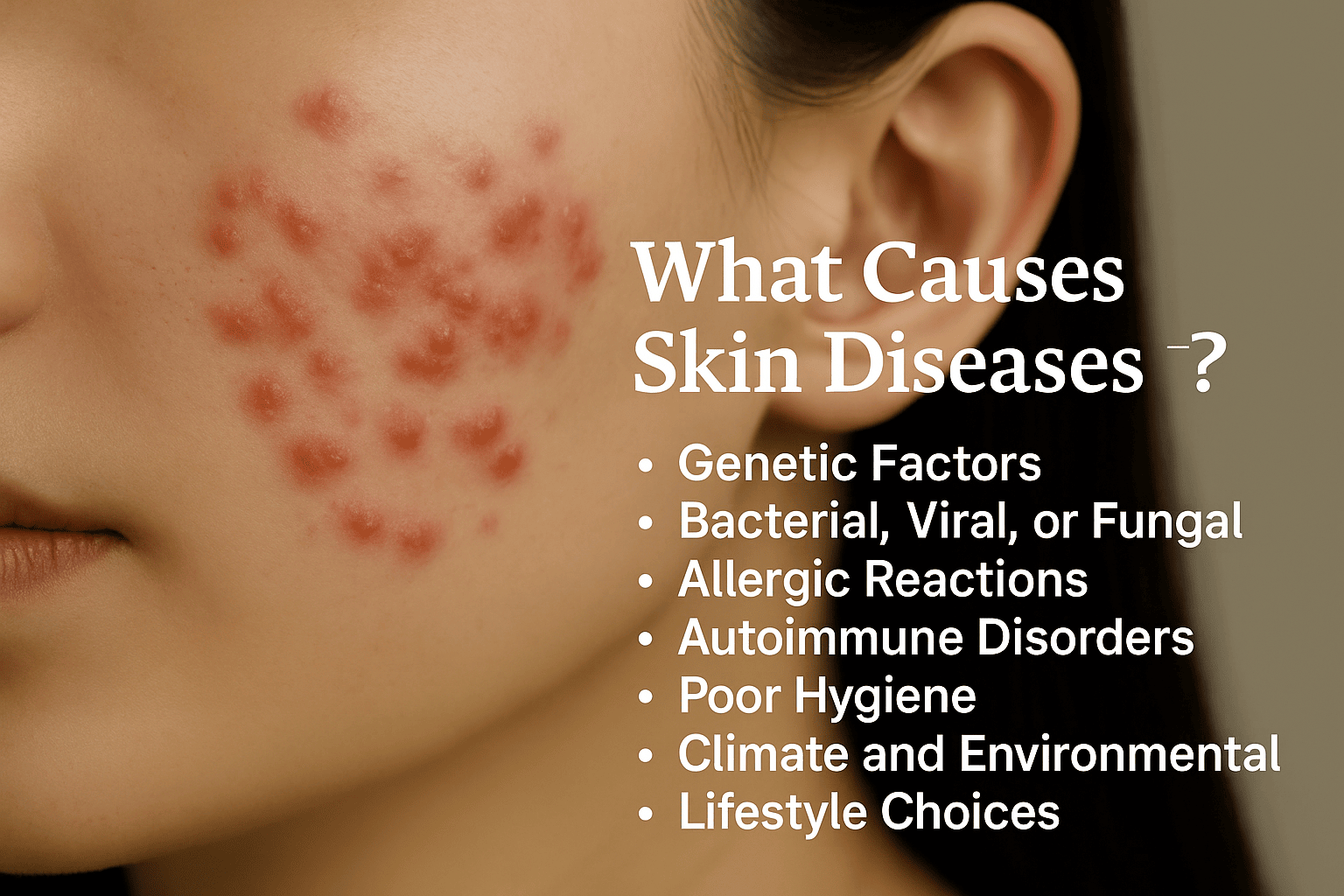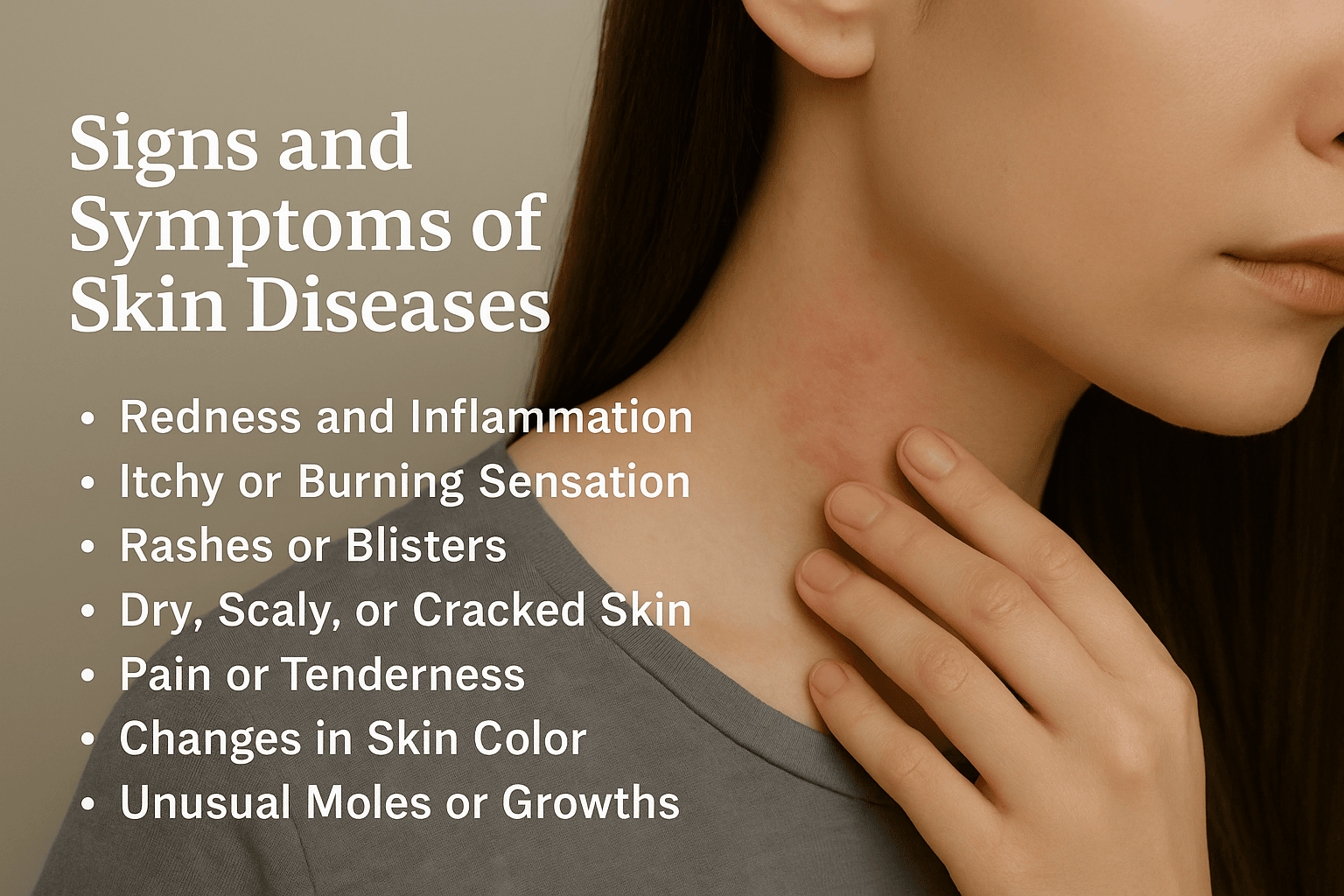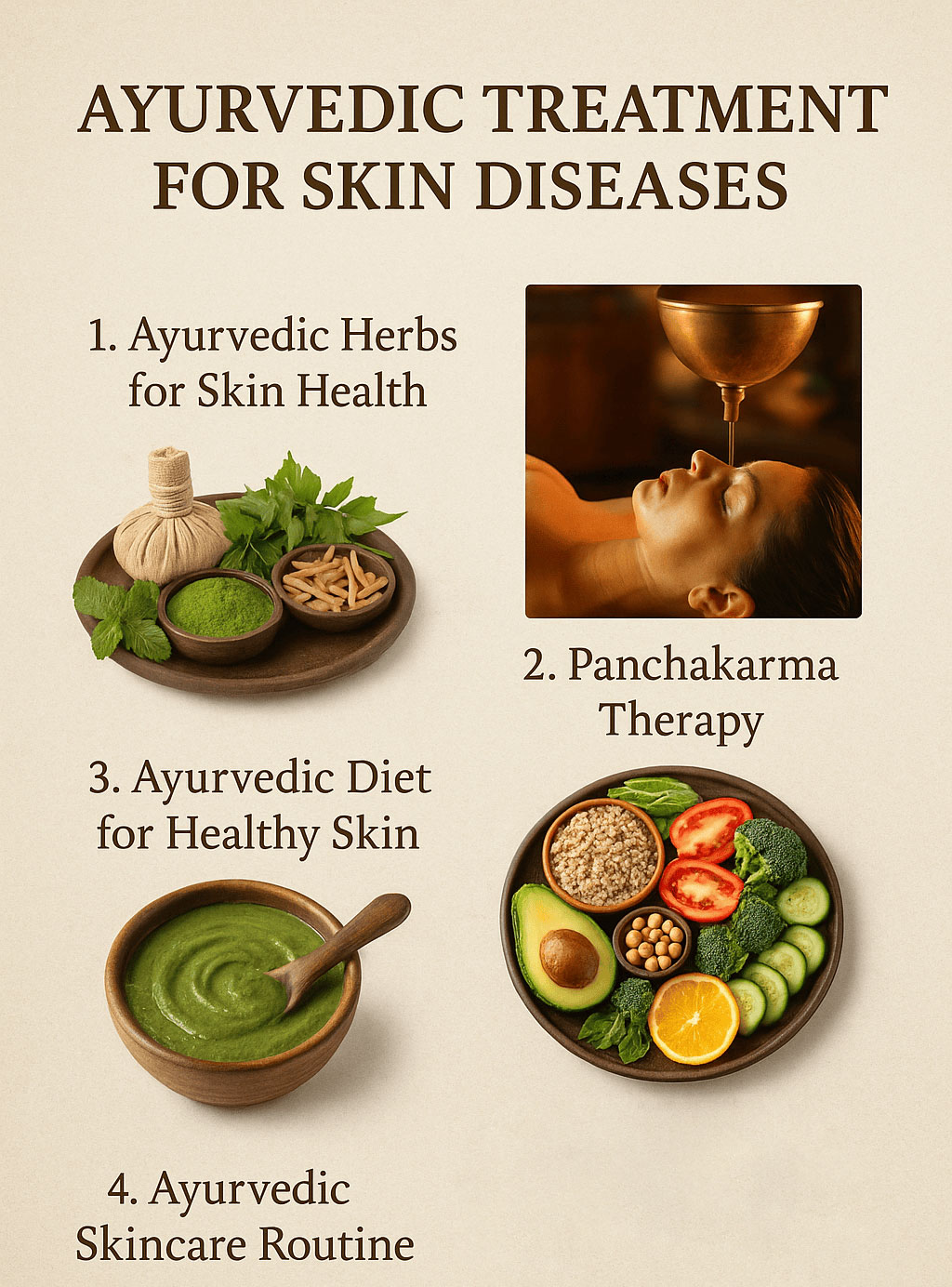What is Skin Disease?
Skin diseases refer to various conditions that affect the skin, causing irritation, inflammation, rashes, infections, or other changes in texture and appearance. These conditions can be acute or chronic, mild or severe, and may arise due to infections, allergies, immune system disorders, or environmental factors.
While some skin diseases are temporary, others require long-term management. Proper diagnosis and treatment are essential for maintaining healthy skin.
Types of Skin Diseases
These conditions are caused by bacteria, viruses, fungi, or parasites and may be contagious. Examples include:
- Acne – Caused by clogged pores and bacterial infections.
- Ringworm – A fungal infection that appears as circular, red rashes.
- Warts – Caused by the human papillomavirus (HPV).
- Impetigo – A bacterial skin infection resulting in red sores.
- Eczema (Dermatitis) – Itchy, red, inflamed skin.
- Psoriasis – Thick, scaly patches due to an overactive immune system.
- Rosacea – Redness and visible blood vessels, often on the face.
- Vitiligo – Loss of skin pigmentation, forming white patches.
- Lupus – Causes skin rashes, lesions, and inflammation.
- Scleroderma – Leads to hardening and tightening of the skin.
- Hives (Urticaria) – Itchy, red welts caused by allergens.
- Contact Dermatitis – Skin irritation due to direct contact with allergens or irritants.
- Basal Cell Carcinoma – A common and slow-growing cancer.
- Melanoma – The most aggressive and dangerous type of skin cancer.

What Causes Skin Diseases?
- Genetic Factors – Some skin conditions, such as eczema and psoriasis, run in families.
- Bacterial, Viral, or Fungal Infections – Pathogens can cause infections leading to acne, warts, or ringworm.
- Allergic Reactions – Exposure to allergens like dust, pollen, or cosmetics can trigger skin conditions.
- Autoimmune Disorders – Conditions like vitiligo and lupus occur when the immune system attacks healthy skin cells.
- Poor Hygiene – Lack of proper skin care can lead to infections and other skin issues.
- Climate and Environmental Factors – Harsh weather, pollution, and sun exposure can damage the skin.
- Lifestyle Choices – Unhealthy diet, lack of sleep, and stress can worsen skin problems.


Signs and Symptoms of Skin Diseases
- Redness and Inflammation
- Itchy or Burning Sensation
- Rashes or Blisters
- Dry, Scaly, or Cracked Skin
- Pain or Tenderness
- Changes in Skin Color
- Unusual Moles or Growths
Ayurvedic Treatment for Skin Diseases
- Neem – Has antibacterial and antifungal properties to fight infections.
- Turmeric (Haldi) – Contains curcumin, which reduces inflammation and promotes healing.
- Aloe Vera – Soothes irritation and hydrates the skin.
- Manjistha – Purifies blood and helps with skin detoxification.
- Sandalwood – Cools and soothes irritated skin.
- Virechana (Purification Therapy) – Removes excess Pitta dosha responsible for skin inflammation.
- Abhyanga (Herbal Oil Massage) – Nourishes the skin and improves blood circulation.
- Include fresh fruits, vegetables, nuts, and whole grains.
- Drink plenty of water and herbal teas.
- Avoid spicy, oily, and processed foods.
- Consume cooling foods like cucumber, coconut water, and buttermilk.
- Use natural cleansers like gram flour (besan) and rose water.
- Apply herbal face packs made of sandalwood, turmeric, and honey.
- Avoid harsh chemical-based skincare products.
- Practice yoga and meditation to reduce stress.

When to See a Doctor?
If you experience persistent skin issues, severe itching, pain, or sudden changes in skin appearance, consult a dermatologist for diagnosis and treatment.
Frequently Asked Questions (FAQs)
Ayurveda focuses on treating the root cause rather than just the symptoms. Many skin conditions can be effectively managed with consistent treatment.
Yes, Ayurvedic remedies use natural ingredients and are generally safe for all skin types.
Neem oil, coconut oil, and kumkumadi oil help in moisturizing, healing, and reducing inflammation.
Conclusion
Ayurveda provides a holistic approach to treating skin diseases by balancing doshas, detoxifying the body, and using natural remedies. Consult an Ayurvedic expert for personalized treatment.





